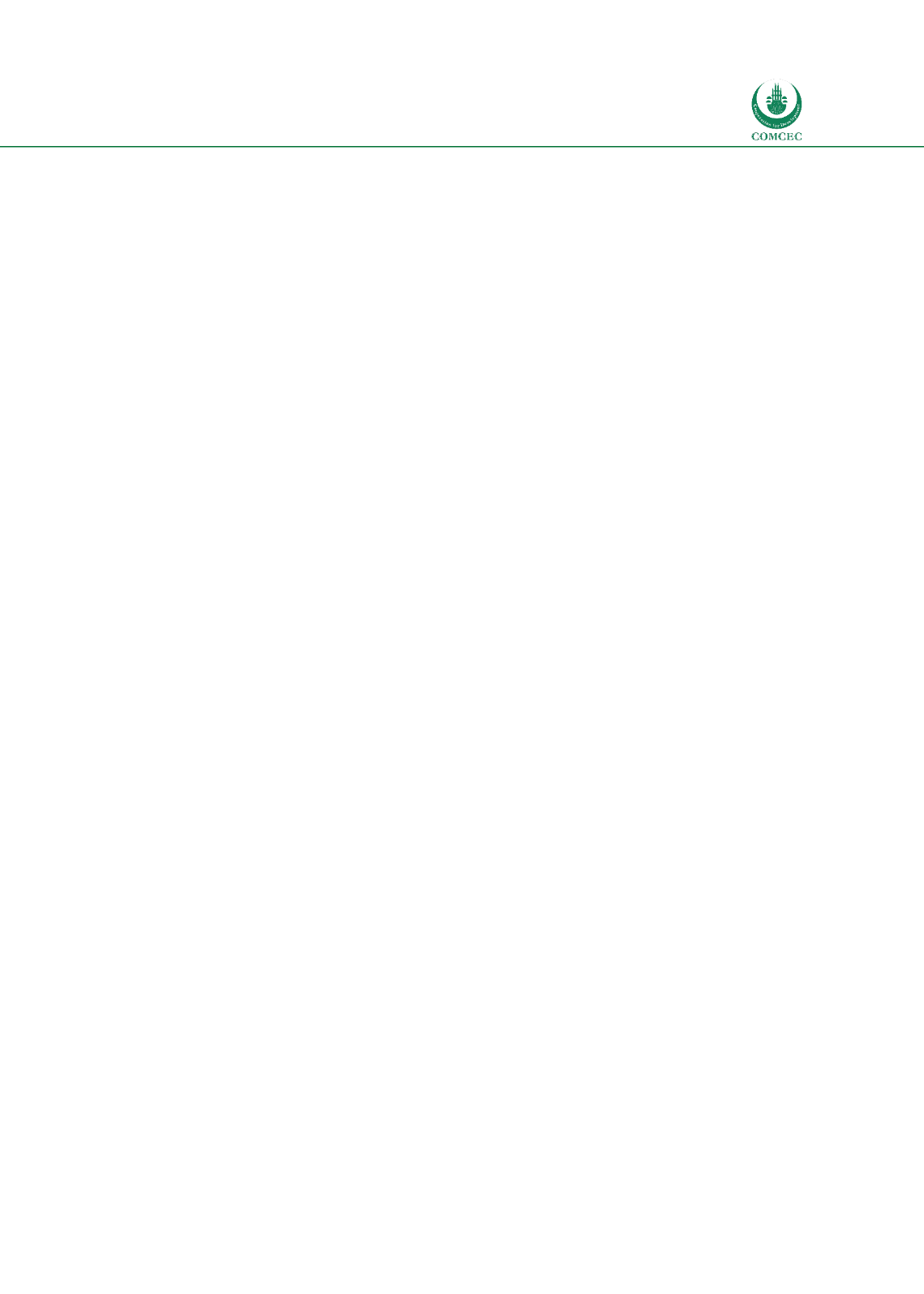

National and Global Islamic Financial Architecture:
Prolems and Possible Solutions for the OIC Member Countries
173
were withdrawn in the aftermath of the crisis in 2008 (Reuters 2008). The avowed reasons for
the 2014 issuance were largely to do with the UK’s ambitions to be an international centre for
Islamic finance. The relevant press statement said “Today’s issuance of Britain’s first sovereign
Sukuk delivers on the government’s commitment to become the western hub of Islamic finance
and is part of our long term economic plan to make Britain the undisputed centre of the global
financial system. … By issuing sovereign Sukuk, the government has demonstrated that it is
possible to create a successful British base for Islamic finance.” (UK Treasury 2014). In late
2014, the UK Government announced that its export credit agency was planning to provide
Shari’ah compliant support for British exporters. Shortly afterwards, the agency underwrote
its first Islamic bond, providing cover for a USD913 million sukuk issued by Dubai’s Emirates
Airline to fund new aircraft (TheCityUK 2015).
London has become a major centre for Islamic capital markets, based largely on the
commercial success of the London Stock Exchange (LSE) as an international exchange. The LSE
is a key global venue for the issuance of sukuk. Since August 2015 a total of 57 sukuk have been
listed on the LSE with a total value of USD51bn. It also has an active market in Exchange
Traded Funds (ETFs) including 4 Sharia compliant ETFs based on Islamic indices. A total of
seven Shari’ah-compliant ETFs are currently traded on the exchange. A UK-based Islamic bank
launched the first Shari’ah compliant fixed income fund in March 2009 (TheCityUK 2015a).
Takaful has not established itself so easily. The British Islamic Insurance Company (trading
under the name Salaam Halal) was established in 2008 to offer primarily personal lines
including motor insurance, but this was closed to new business the next year having failed to
gain traction (Dunkley 2009). However, in 2013 the Cobalt platform was launched in the
London market, allowing a number of insurance firms to offer capacity through Takaful
windows with common management. This is directed at large commercial business in the
international market and appears to date to have been more successful. Its capacity comes
from insurers and reinsurers based in several jurisdictions, including a Shari’ah compliant
syndicate at Lloyd’s (TheCityUK 2015a, Cobalt 2015).
The UK is a major global provider of the specialist legal expertise required for Islamic finance,
with around 25 major law firms providing legal services in this area. This will be supported by
the fact that the law of England and Wales is a common choice for international financial
business, including many sukuk. Specialist services are also available for advice on tax, listings,
transactions, regulations, compliance, management, operations and information technology
systems (TheCityUK 2015).
In absolute numbers, the UK is the largest provider of Islamic finance courses and degrees in
the world, with 68 educational institutions offering courses. In terms of the total number of
published research papers, between 2011 and 2013, the UK (with 149 published research
papers), came second only to Malaysia (421). Among professional bodies, courses in Islamic
finance are offered by the Chartered Institute for Securities and Investment (CISI), Chartered
Institute of Management Accountants, Association of International Accountants and the
Institute of Islamic Banking and Insurance. The Islamic Finance Council UK has developed a
Scholar Professional Development Programme in conjunction with CISI to teach conventional
finance to Sharia scholars worldwide. Partners for this programme include the Central Bank of
Bahrain and the International Sharia Research Academy for Islamic Finance (TheCityUK 2015).
The architectural institutions related to Islamic finance in UK are summarized below:
















